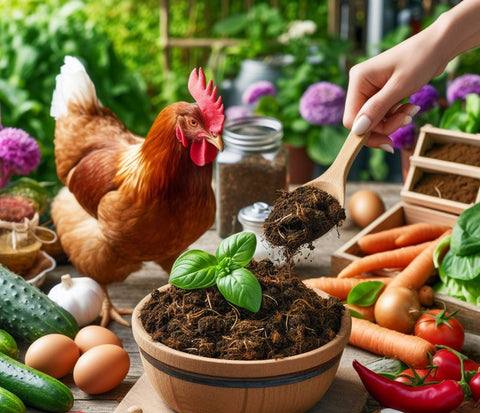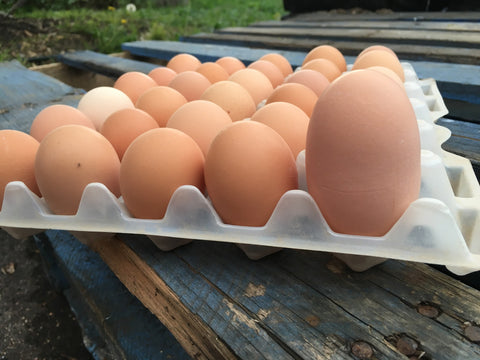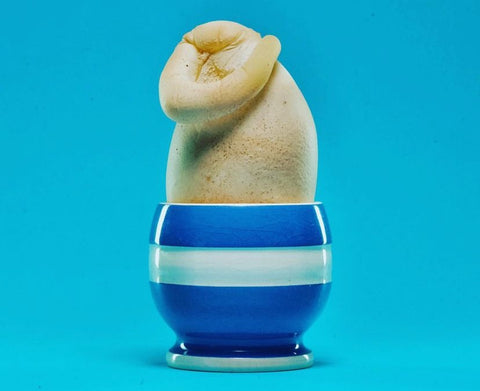Believe it or not, your chook’s manure is arguably more valuable than the amazing eggs they produce!
According to many garden experts, this `hot manure’ is the best type of fertiliser due to its high nitrogen, potassium and phosphorus content.
Why is chicken manure so good?
To begin with, the high nutrients are incredible for plants – they promote growth, help make roots, seeds, fruit and flowers plus give the plant strength and protection from disease.
Furthermore, the manure (along with other organic matter like bedding and feathers) improves soil structure, which helps with drainage or water retention. Importantly though, it enables soil biota (micro organisms, soil animals and plants) to flourish.
Yet, there’s a catch.
Chicken manure can cause harm to you and your plants if its not used properly.
How is it harmful?
Quite simply, fresh manure should not go directly on a planted garden.
The high nitrogen content from fresh manure can burn plants and roots. In addition, it contains pathogens that are harmful to people so keep it off your vegetable patch!
Here’s how to use chicken manure
You see, chicken manure need to age (or heat) before nitrogen levels are safe and pathogens have died off. This can be achieved in different ways.
1. Cold Compost
This method involves systematically removing the manure and bedding into a compost heap to cure up to a year. The bedding provides carbon, which is necessary to help break down the nitrogen rich manure.
2. Deep litter system in the coop
Perhaps an even easier option is to cold compost with a deep litter system in the coop. Your girls will aerate the bedding for you and after a year it will be ready and safe to use on the garden.
For the best results:
- Use wood shavings at a depth of at least 10cm
- Although more expensive, hemp fibre is the "Gold Standard" of bedding and nesting materials for backyard chickens
- Keep bedding dry (to fend off parasites and odour)
- Continue to routinely scoop manure out from the perch area to prevent dangerous ammonia build up overnight
3. Hot compost
If you think a year is too long to wait for this brown gold to cure, consider researching a hot compost system instead. While it’s quicker (your manure’s ready within about 3 months) be prepared for a bit more work.
For best results:
- Include both the bedding and manure in a dedicated bin
- Soak with water (that’s so the internal temperature can reach approximately 60 degrees Celsius)
- Aerate twice weekly for about a fortnight
- Let it sit for a further month or 2
4. Spread on the garden
If you have an empty spot in the garden that you intend to plant in 6 months time (or longer), spread the manure across the top soil.
5. Liquid fertiliser
To make the most of your manure right now, use it as a liquid fertiliser.
For best results:
- Fill 1/3 watering can or bucket with manure and stir
- Let it sit for a week
- Strain and water plants
When is it ready?
Ideally, the manure will be ready when it looks granular and dark. It will smell different too, less like ammonia and more like soil.
You can either cover it evenly across your top soil (being careful not to let it touch plant stems) or lightly mix it through the soil. Cover it over with mulch and water it in.







Comments (1)
I rake up the chicken manure daily, n when the grain bag is full , I store it behind our shed, it’s mostly in the shade. I use it when it breaks down enough n looks like soil. It’s mixed in with the soil in my garden, then I water it n leave it sit for about a week, then I plant.